The Japan Foundation Awards (2023)
The Japan Foundation (JF) is proud to announce the recipients of the Japan Foundation Awards 2023.
This year marks the 50th anniversary of the Japan Foundation Awards, which were launched in 1973, the year after the establishment of the Japan Foundation. For the past 50 years, the Foundation has presented the Japan Foundation Awards to individuals and organizations that have made significant contributions to promoting international mutual understanding and friendship between Japan and other countries through academic, artistic, and other cultural pursuits.
In celebrating this milestone year, the three recipients listed below have been selected after the screening of 78 candidates nominated by experts and the general public.
The Japan Foundation Awards, Presentation Ceremony
MIYAGI Satoshi (Stage Director/General Artistic Director of the Shizuoka Performing Arts Center) [Japan]
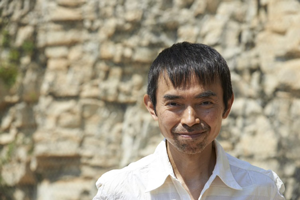
(c) Ryota Atarashi
Mr. MIYAGI Satoshi, the General Artistic Director of The Shizuoka Performing Arts Center (SPAC), is an internationally acclaimed stage director who produces festive spaces on the stage through his unique fusing of physical movement, words, and music.
Born in Tokyo in 1959, Mr. Miyagi went on to study theater theory at university, ultimately founding the Ku Na’uka Theater Group in 1990. His approach to direction is notable for using two actors to play a single role at the same time, with one performing the movements and the other speaking the lines. The result is a unique dynamism that transcends the ordinary, born of the interaction on the stage between the strongly restrained and purified energy of one actor speaking their lines while seated and another moving expressionlessly like a Bunraku puppet. This approach has been applied to a wide repertoire of works from Shakespeare to Mishima. Mr. Miyagi took his position as the General Artistic Director of SPAC in 2007. He focuses on theater as a “window to the world” through the staging of his own works, as well as hosting theater festivals where he invites works from throughout the world that sharply critique modern society. His awards include the Art Encouragement Prize (Theatre Division) of the Minister of Education, Culture, Sports, Science and Technology in 2018, and the Chevalier de la Ordre des Arts et des Lettres of France in 2019.
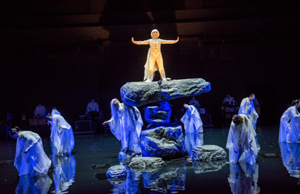
(c) Stephanie Berger
Though Mr. Miyagi has actively produced performances overseas since founding Ku Na’uka, works that particularly attracted major international attention include his production of the Indian epic Mahabharata - Nalacharitam - at the Festival d’Avignon in 2014, and the production of the Greek tragedy Antigone at the same festival held at the Cour d'honneur du Palais des papes in 2017, the first opening performance by an Asian theater group there in history. He has received great acclaim for his approach to directing that fuses contemporaneous textual interpretation with the physical techniques and stylistic beauty of Asian theater. In 2018, he was commissioned by the Théâtre national de la Colline in France to present Révélation by L. Miano at the theater, after which he produced Mahabharata - Nalacharitam - at Japonisme 2018 in Paris. In the United States, he produced a performance of Antigone before an audience of over 10,000 people in New York at Japan 2019, while he directed the Mozart opera Mitridate, re di Ponto at the Berlin State Opera in 2022. These and other performances have arguably made him one of the leading stage directors in Japan who is attracting attention from throughout the world.
Accordingly, we chose to award Mr. Miyagi the Japan Foundation Award in recognition of his major contribution to international mutual understanding through his many years of stage direction, and to encourage his future endeavors.
OGAWA Yoko (Novelist) [Japan]
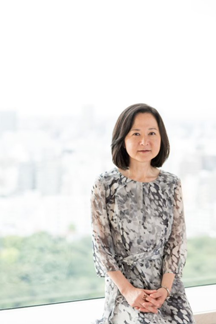
(c) Kodansha
Ms. OGAWA Yoko debuted in 1988 by winning the new writer’s award from a literary magazine, going on to attract readers throughout Japan after winning the Akutagawa Prize three years later with the publication of Pregnancy Diary. Over the more than 30 years of writing that followed, she has continued to produce excellent long and short stories, winning awards for such publications as The Housekeeper and the Professor (2004, Yomiuri Literary Prize), Mina's March (2006, Tanizaki Junichiro Award), and Small Box (2020, Noma Literary Prize).
The world depicted in the works of Ms. Ogawa, who explains that she “became a writer after reading The Diary of Anne Frank,” is often a quiet, closed space, like the past engraved in the memories of the dead. The characters she depicts face the loss of memory or of life, cherish strange relics, and mourn with compassion. Her stories are formed around the idea that death applies equally to all, and serve as a deep bell ringing against the rationalization of modern society through science and technology.
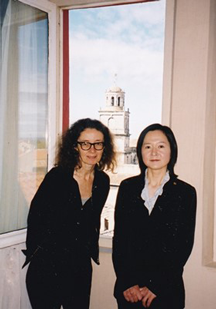
With Ms. Rose-Marie MAKINO FAYOLLE, Translator of novels (left)
The number of researchers and translators who have intuited the universal strength of her works, which have evoked sympathy across barriers of language and borders while being written in elegant Japanese, has steadily increased, achieving a rapid entry into the literary worlds of the U.S. and Europe in the 2000s. French translations of her works enjoy a particularly large readership, with a total of 27 works translated to date, and the production of a film in France based on The Ring Finger in 2005. Her works have also notably spread throughout Asia in recent years, including Taiwan, China, and Korea, reaching a total of 36 works translated into 37 languages overseas as of mid-2023 (or 39 works including those she co-authored).
Her works The Housekeeper and the Professor, The Memory Police, and Hotel Iris are read and highly praised throughout the world. Of those, The Memory Police, a long-form novel depicting a dystopia in which even memories are eventually erased, was quickly selected as a finalist for the Booker Prize in the UK and the National Book Award for Translated Literature after the publication of the English translation in 2019, proving that Ms. Ogawa was a writer at the very forefront of contemporary literature.
Today Ms. Ogawa works to lead and encourage not only readers throughout the world, but the next generation of Japanese writers and even those involved in Japanese language education. Accordingly, we chose to award Ms. Ogawa the Japan Foundation Award in recognition of her major contribution to international mutual understanding through literature and the Japanese language, and to encourage her continuing endeavors.
Peruvian Japanese Association/Asociación Peruano Japonesa (APJ) [Peru]
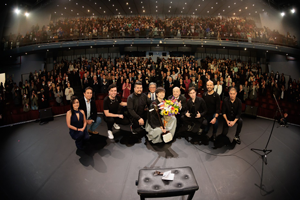 (c) APJ
(c) APJJapanese society is generally aware of information about and exchanges with ethnic Japanese people living in the U.S. and Brazil, but relatively unaware of the over 100,000 ethnic Japanese living in Peru. When we recall the recent history of the country, including the first ethnic Japanese president of Peru, we can reaffirm how ethnic Japanese have become an important part of Peruvian society. Given that this year marks the 150th year of diplomatic relations between Japan and Peru, and the 124th year since the start of immigration, we must not forget about the Peruvian Japanese Association (APJ), which has supported the ethnic Japanese community in Peru for many years.
Since its founding in 1917, the APJ has worked to support mutual assistance between ethnic Japanese and promote their integration into Peruvian society. Japanese language education for the children of immigrants had already begun in 1908, prior to the APJ’s establishment, but the activities of the Japanese immigrants were subsequently restricted during WWII. The spread of Japanese language education in Peruvian society, primarily through the APJ’s Centro Cultural Peruano Japones (Peruvian Japanese Cultural Center), after WWII became particularly significant with the worldwide interest in Japanese pop culture, such as manga and anime, in recent years. The APJ has come to serve as a hub for Japanese language education in South America, such as through establishing the Sudamericana de Países de Habla Hispana para la Enseñanza del Idioma Jáponés (Japanese Language Association of Spanish Speaking Countries in South America) in 2015, a liaison organization for the nine Spanish speaking countries in South America.

(c) APJ
The APJ also operates the Centro Cultural Peruano Japones (Peruvian Japanese Cultural Center), the largest cultural center for the ethnic Japanese community in Peru, which serves as a central facility for such cultural activities as concerts, performing arts, exhibits, and conferences. The Center engages enthusiastically in Japanese research and international dialogues, leading the translation and publication of Japanese literary classics and dialogues between ethnic Japanese throughout Central and South America. The museum of the Center also contains a permanent exhibition on the history of Japanese immigrants. Another important activity of note is that the APJ contributes to medical services in Peru as well. For example, the Policlínico Peruano Japonés (Japanese Peruvian Polyclinic) established in 1981 serves one million patients per year, while the Clínica Centenario Peruano Japonesa (Peruvian Japanese Centennial Hospital), established in 2005 to commemorate 100 years of Japanese immigration to Peru, treats 1,000 outpatients per day.
For these and many other reasons, we believe that it is both timely and appropriate to present the Japan Foundation Award to the APJ on the occasion of the 150th anniversary of Japan-Peru relations.
- The Japan Foundation Awards
- The Japan Foundation Awards (2023), Presentation Ceremony
- The Japan Foundation Awards Recipients, Presentation Ceremony and Commemorative Events in Previous Years
[Contact Us]
The Japan Foundation Public Relations Div.
Tel. +81-(0)3-5369-6075
Fax: +81-(0)3-5369-6044
Email: kikinsho@jpf.go.jp
(When sending an e-mail, please replace the full-width "@" character with a half-width character.)
- What We Do Top
- Arts and Cultural Exchange [Culture]
- Japanese-Language Education Overseas [Language]
- Japanese-Language Education Overseas [Language] Top
- Learn Japanese-language
- Teach Japanese-language
- Take Japanese-Language Test
- Know about Japanese-language education abroad
- The Japanese-Language Institute, Urawa
- The Japanese-Language Institute, Kansai
- Japanese-Language Programs for Foreign Specified Skilled Worker Candidates
- Japanese Language Education for Japanese Children Resident Overseas and for the Descendants of Migrants
- Archives
- Japanese Studies and Global Partnerships [Dialogue]
- JF digital collection
- Other Programs / Programs to Commemorate Exchange Year
- Awards and Prizes
- Publications
